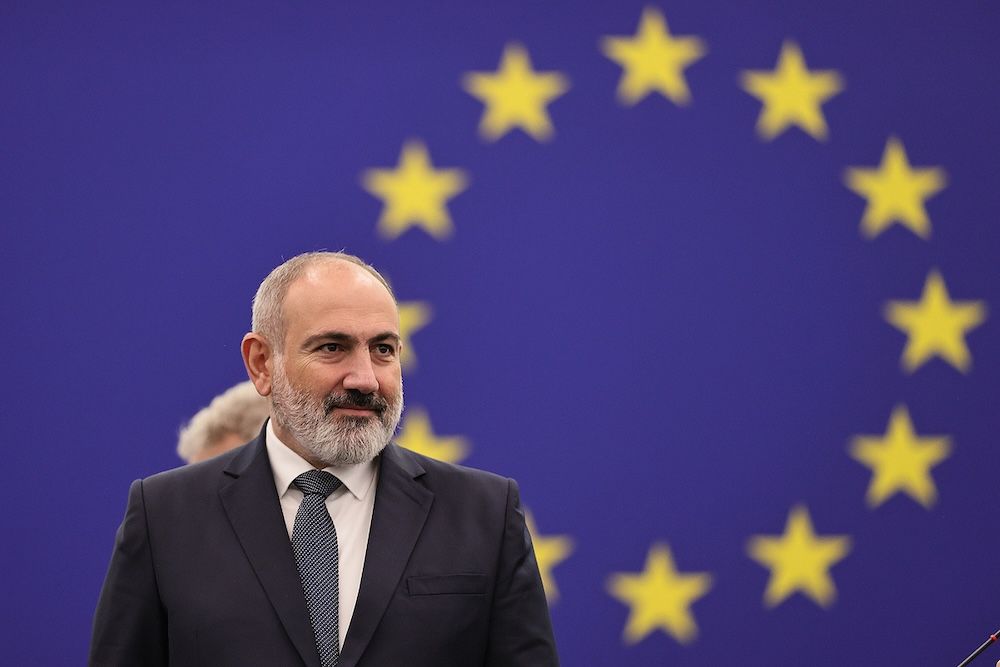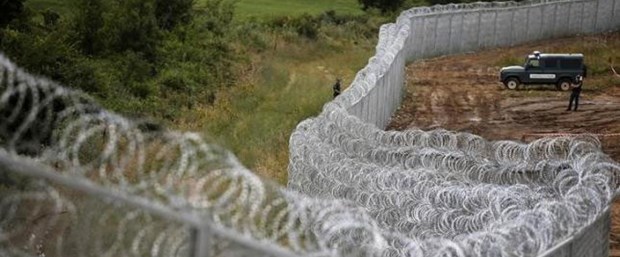Miguel MORENO
Turgut Kerem TUNCEL
04.06.2015
The recently increased activity of the Armenian lobbies in different countries has resulted in a number of declarations on the issue of the recognition of the 1915 events as genocide. Some of these declarations have come from regional parliaments in Spain. Although the Spanish Parliament does not recognize the events as genocide and the Spanish Senate rejected a proposal on the matter as recently as May 2015, the parliaments of the Basque Country, the Balearic Islands, Catalonia and Navarre have issued declarations on ‘Armenian genocide’. These are non-binding political statements without any legal meaning, but still deserve examination to have a better understanding of what the recognition of the 1915 events as genocide amount to, and of how this particular issue is dealt with within the Spanish context.
The parliament of the Basque Country was the first regional parliament in Spain to approve, in April 2007, a declaration recognizing the 1915 events as genocide. This was followed by similar declarations by the parliament of Catalonia in February 2010, by the parliament of the Balearic Islands in December 2010 and by the parliament of Navarre in June 2014. All of the statements can be found in their respective parliament's official websites[1].
These declarations contained some inaccuracies, the most striking of which must be pointed out. The Basque declaration, being the first of its kind in Spain, was used as a model for the Balearic and Navarrese declarations. This is problematic because the inaccuracies it contained were not always corrected in the following declarations. The most obvious of these, which also shows a lack of seriousness and research, is the line stating that the United Nations Convention on the Crime of Genocide was adopted in 1904, which, indeed, was adopted in 1948. The Balearic declaration included the same mistake, while the Navarrese one kept the 1904 date in the Navarrese parliament's website[2], but corrected it to 1948 in the official bulletin release.
The Basque declaration, when declaring 2007 as the 90th anniversary of the events, interestingly takes 1917 as the date of reference for their remembrance. However, the Temporary Law of the Resettlement of the Ottoman-Armenians was issued on 27 May 1915 and the Armenian historiography designates the resettlement and the aftermath as the ‘Armenian genocide’, hence talk about the “Armenian genocide of 1915”. There is no Armenian, Turkish or other source which mentions 1917 as a relevant date for what is represented as the ‘Armenian genocide’.
The same declaration mentions how the Basque parliament had condemned other genocides in the past, and it mentions “those occurred in [...] Kosovo, Iraqi Kurdistan or the man-made Ukrainian famine of 1932-33”, none of which has been legally recognized as genocide by competent tribunals.
The number of casualties in the 1915 events is always a matter of discussion, but the Basque declaration contradicts itself in the same text by stating that “almost 2 million people” were murdered, and then saying some lines below that those murdered were “more than 2 million people”. Regarding the Parliament of Navarra, its declaration accuses “the Turkish regime existing at the moment” for “the murder of more than two million people”. The choice of words may lead to confusion, as it can be understood that said regime had some relation with the Republic of Turkey, and not with the regime of the Ottoman Empire. Moreover, the first draft of the declaration included three points which were eventually not included in the final declaration, one of which stated “the extermination of more than 1'5 million Armenians” - a different number from that given in the beginning of the same text.
The Catalan declaration seems to be the result of a more solid research, and it stresses the importance of the 2009 Protocols signed in Zurich between Armenia and Turkey as a step towards reconciliation. However, it describes “the events suffered by the Armenian population between 1915 and 1921” as genocide. The relevance of the year 1921 as a significant date, however, remains beyond grasp.
Another issue raised in all of the declarations in one way or another is the need for Turkey to establish good neighborly relations with Armenia and to solve the border conflicts in the Caucasus region in a peaceful manner. But it is not indicated that Turkey has no border disputes in the Caucasus with any of its neighboors, including Armenia, nor it is mentioned that one of the main sources of instability in the region is Armenia's occupation of 1/5 of the territory of Azerbaijan and also her territorial claims on Turkey.
Recognition of the 1915 events as genocide has never been high on the list of priorities in the Spanish political agenda. Spanish society generally perceives the dispute as something historically and geographically distant. The Armenian community in Spain is too small in number compared to other countries like France or Argentina to exert pressure on the central government. However, from a sociological point of view, it is worth noting that the Spanish parliaments which voted in favour of recognizing the 1915 events as genocide are those of regions with a strong sense of seperate ethnic identity and nationalist ideology. Although this shall not be considered as the only factor behind these resolutions, the idea of solidarity with peoples and nations that are considered to have been oppressed in some way or another is a strong motivation for many MP’s of these regions, especially those in nationalist or separatists parties, to vote in favor of the ‘genocide resolutions’. Possibly, humanitarian concerns might have played a role, in addition to ‘ego-centric’ concerns of the regional parliaments. Such a concern can be well-received, but only if that sense of solidarity with the oppressed is based on facts, good judgement, earnestness and solid knowledge.
[1] Basque Country: Aldizkari ofiziala – Boletín oficial, “En el 90 aniversario del genocidio armenio (Acuerdo del Pleno) (08/11.05.00.033)”, n. 99, 27-04-2007. http://www.parlamento.euskadi.net/BASIS/izaro/webx/cm_bopvc/DDW?W=boc_clave=%2708110500003320070427016312%27&R=N ; Balearic Islands: Butlletí oficial del Parlament de les Illes Balears, “RGE num. 5789/10, relativa al reconeixement el genocidi armeni”, n. 158, 21-01-2011. , http://web.parlamentib.es/repositori/PUBLICACIONS/7/bopibs/bopib-07-158.pdf ; Navarra: Boletín oficial del Parlamento de Navarra, “Declaración institucional por la que el Parlamento de Navarra recuerda el aniversario del genocidio contra el pueblo Armenio y denuncia la política desarrollada por el régimen turco existente en aquel momento”, n. 81, 27-06-2014, http://www.parlamentodenavarra.es/UserFiles/File/BOP/B2014081.pdf ; Catalonia: Butlletí oficial del Parlament de Catalunya, “Resolució 62 6/VIII de Parlament de Catalunya, de reconeixement del genocidi armeni i de suport a l'acord signat a Zuric el 10 d'octubre de 2009 entre Armènia i Turquia, Tram. 250-02406/08”, n. 645, 8-03-2010. http://www.parlament.cat/activitat/bopc/08b645.pdf
© 2009-2025 Center for Eurasian Studies (AVİM) All Rights Reserved

 AZERBAIJAN-ARMENIA PEACE TREATY PROCESS AND ATTEMPTS TO UNDERMINE TÜRKİYE-AZERBAIJAN RELATIONS
AZERBAIJAN-ARMENIA PEACE TREATY PROCESS AND ATTEMPTS TO UNDERMINE TÜRKİYE-AZERBAIJAN RELATIONS
 IS IRAN GETTING MORE ISOLATED?
IS IRAN GETTING MORE ISOLATED?
 CHANGING ARCTIC AGENDA AT THE DAVOS SUMMIT
CHANGING ARCTIC AGENDA AT THE DAVOS SUMMIT
 THE EU CONTRADICTS ITSELF BY CRITICISING TRUMP FOR BUILDING THE WALL ALONG THE US-MEXICO BORDER
THE EU CONTRADICTS ITSELF BY CRITICISING TRUMP FOR BUILDING THE WALL ALONG THE US-MEXICO BORDER




























